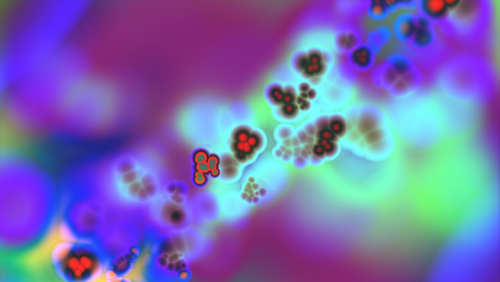NUS study: Nanoparticles may promote cancer metastasis
Newswise Feb 04, 2019
NUS researchers found that cancer nanomedicines, which are designed to kill cancer cells, may accelerate metastasis.

Nanoparticles can be found in processed food (eg, food additives), consumer products (eg, sunscreen), and even in medicine. While these tiny particles could have large untapped potential and novel new applications, they may have unintended and harmful side effects, according to a recent study by researchers from the National University of Singapore (NUS).
Using breast cancer as a model, they discovered that common nanoparticles made from gold, titanium dioxide, silver, and silicon dioxide—also used in nanomedicines —widen the gap between blood vessel cells, making it easier for other cells, such as cancer cells, to go in and out of “leaky” blood vessels.
The phenomenon, named "nanomaterials-induced endothelial leakiness" (NanoEL) by the NUS team, accelerates the movement of cancer cells from the primary tumor and also causes circulating cancer cells to escape from blood circulation. This results in faster establishment of a bigger secondary tumor site and initiates new secondary sites previously not accessible to cancer cells.
“For a cancer patient, the direct implication of our findings is that long-term, pre-existing exposure to nanoparticles—for instance, through everyday products or environmental pollutants—may accelerate cancer progression, even when nanomedicine is not administered,” explained research co-leader associate professor David Leong from the Department of Chemical and Biomolecular Engineering at NUS Faculty of Engineering.
He added, “The interactions between these tiny nanomaterials and the biological systems in the body need to be taken into consideration during the design and development of cancer nanomedicine. It is crucial to ensure that the nanomaterial delivering the anti-cancer drug does not also unintentionally accelerate tumor progression. As new breakthroughs in nanomedicine unfold, we need to concurrently understand what causes these nanomaterials to trigger unexpected outcomes.”
The study, jointly led by Leong and associate professor Ho Han Kiat from the Department of Pharmacy at NUS Faculty of Science, was published in scientific journal Nature Nanotechnology on January 28, 2019.
Harnessing the double-edged sword to develop more effective treatments
Fortunately, the situation is not doom and gloom. The NUS researchers are harnessing the NanoEL effect to design more effective therapies. For example, nanoparticles that induce NanoEL can potentially be used to increase blood vessel leakiness, and in turn promote the access of drugs or repairing stem cells to diseased tissues that may not be originally accessible to therapy.
Leong said, “We are currently exploring the use of the NanoEL effect to destroy immature tumors when there are little or no leaky blood vessels to deliver cancer drugs to the tumors. We need to tread this fine line very carefully and optimize the duration at which the tumors are exposed to the nanoparticles. This could allow scientists to target the source of the disease, before the cancer cells spread and become a highly refractory problem.”
Ho added, “Moving beyond cancer treatment, this phenomenon may also be exploited in other conditions where a failure of leakiness is a key feature. For instance, organ injuries such as liver fibrosis may cause excessive scarring, resulting in a loss in leakiness which reduces the entry of nutrient supplies via the blood vessels. Both our research groups are now looking into leveraging the NanoEL effect to restore the intended blood flow across the scarred tissues.”
-
Exclusive Write-ups & Webinars by KOLs
-
Daily Quiz by specialty
-
Paid Market Research Surveys
-
Case discussions, News & Journals' summaries